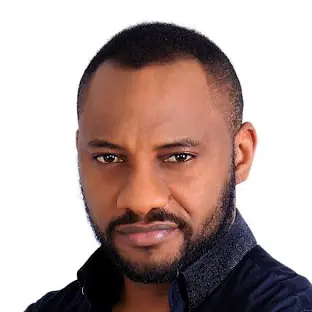Controversial Nollywood actor, Yul Edochie, has ignited a firestorm of debate with his bold statement that many Nigerian pastors are divinely called to be native doctors but have abandoned their true calling.
The actor, who is known for his outspoken views and recent self-proclaimed role as a cleric, made the claim in a post on his Instagram page, sparking intense reactions online.
According to Edochie, the influence of Western culture and the portrayal of native doctors as “evil” in Nollywood films have caused many spiritual leaders to abandon their original, divine calling.
“Many pastors today actually have the calling to be native doctors but they are refusing to answer the call because oyibo (Western) people brainwashed us to believe it is evil,” Edochie said in his Instagram post.
Edochie, who has long been a figure of controversy in the Nigerian entertainment industry, emphasized that being a native doctor is a spiritual calling meant to help humanity. He argued that, like pastors, native doctors have a divine responsibility to fight evil. “A true native doctor fights evil unless he decides to be evil, same way a pastor can decide to be evil,” he explained.
This statement has sparked strong reactions from both supporters and critics. Those in support of Edochie’s views praise his advocacy for indigenous spirituality, arguing that African traditions have been undermined by Western influences and the rise of Christianity. For them, Edochie’s words serve as a wake-up call to embrace and respect African roots.
However, his remarks have drawn sharp criticism from many others, particularly within the Christian community, who view his comments as an attack on their faith. Critics argue that Edochie’s statement undermines the core beliefs of Christianity, a religion practiced by millions of Nigerians.
The actor’s controversial statement came after a series of public posts about spirituality and his own evolving religious beliefs. Edochie has made headlines in the past for his statements about religion and politics, often stirring public debate.
“I don’t care if people disagree with me,” Edochie added in a follow-up comment. “I am only speaking the truth as I see it. The truth is that we were taught to fear what we should embrace. African spirituality is not evil; it’s the foundation of who we are.”
Edochie’s views have ignited a broader conversation about the tension between indigenous African religions and Christianity in Nigeria. Historically, Western missionaries sought to convert Africans to Christianity, often painting native religions in a negative light. This cultural clash has persisted for decades, with many Nigerians abandoning their traditional beliefs in favor of Christianity.
In his post, Edochie urged pastors who feel unfulfilled in their spiritual roles to reconsider their paths, suggesting that they may never find satisfaction until they embrace their true calling.
“Many pastors today are unhappy because they are not walking the path they were destined to walk,” Edochie claimed. “They feel lost, they feel empty because they are not answering the call that was placed upon them.”
The actor’s comments also reflect his broader views on identity and culture. Over the years, Edochie has expressed frustration with the impact of Western culture on Nigerian society, often criticizing the influence of foreign ideas and practices.
While some social media users applauded Edochie for challenging the status quo, others vehemently disagreed with his assertions. Some Christians took to social media to express their outrage, calling Edochie’s remarks disrespectful and harmful. “This is nonsense,” one user wrote. “We should never entertain such thoughts. Christianity has done so much good for Nigeria, and now Yul Edochie wants to destroy that?”
Others pointed out the dangers of promoting what they saw as a form of idolatry. “This is dangerous rhetoric,” said another critic. “Encouraging people to abandon their Christian faith and follow native doctors is irresponsible.”
Despite the backlash, Edochie remains firm in his stance, using his platform to call for a shift in perspective on African spirituality. “We need to stop viewing our traditions as evil,” he said. “Our ancestors were not evil. They were wise, and they knew the way to live in harmony with nature and each other.”

